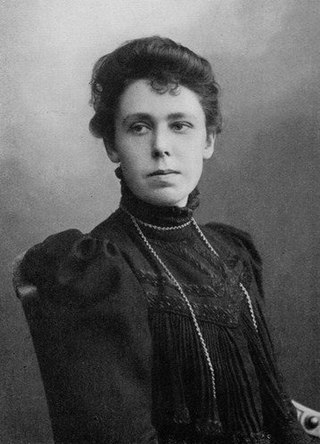
Ingo Potrykus is Professor Emeritus of Plant Sciences at the Institute of Plant Sciences of the Swiss Federal Institute of Technology (ETH), Zurich from which he retired in 1999. His research group applied gene technology to contribute to food security in developing countries. Together with Peter Beyer, he is one of the co-inventors of golden rice. In 2014 he was chairman of the Golden Rice Humanitarian Board.
The Under Secretary for Research, Education, and Economics is a high-ranking official within the United States Department of Agriculture that provides leadership and oversight for the Agricultural Research Service, National Institute of Food and Agriculture, Economic Research Service, National Agricultural Library, National Agricultural Statistics Service.

The University of Hohenheim is a campus university located in the south of Stuttgart, Germany. Founded in 1818, it is Stuttgart's oldest university. Its primary areas of specialisation had traditionally been agricultural and natural sciences. Today, however, the majority of its students are enrolled in one of the many study programs offered by the faculty of business, economics and social sciences. The faculty has regularly been ranked among the best in the country, making the University of Hohenheim one of Germany's top-tier universities in these fields. The university maintains academic alliances with a number of partner universities and is involved in numerous joint research projects.
Peter Beyer is a German Professor for Cell Biology at the Faculty of Biology of the University of Freiburg. He is known as co-inventor of Golden Rice, together with Ingo Potrykus from the ETH Zurich.

Margarethe Mathilde von Wrangell, after 1928 Princess Andronikow, néeBaroness von Wrangell was a Baltic German agricultural chemist and the first female full professor at a German university.
A bioeffector is a viable microorganism or active natural compound which directly or indirectly affects plant performance (biofertilizer), and thus has the potential to reduce fertilizer and pesticide use in crop production.
Torsten Müller is an agricultural scientist at the University of Hohenheim. He is chairman of the examination and admissions board of the European master's degree Course "Organic Agriculture and Food Systems" and Dean of Education of the Agricultural Science Faculty in Hohenheim.
Volker Roemheld was a German agricultural scientist, plant physiologist and soil biologist at Hohenheim University.
Manfred Gustav Raupp is a German agricultural scientist and economist. He is honorary professor of the Czech University of Life Sciences Prague active in the Department of Agricultural Research and International Management. He is a member of the management team of the EU research project Biofector as a specialist in agricultural- and biological-informatics, responsible for training and information.
Uwe Ludewig is a German agricultural scientist specialising in plant physiology. He is director of the Institute for Crop Science at the University of Hohenheim.
Falko Feldmann is a German biologist and practitioner of phytomedicine. He is coordinator of matters concerning approval and registration of active substances and agents for plant protection, including international cooperation on questions about European Plant Protection Laws. He also holds the post of director of the Deutschen Phytomedizinischen Gesellschaft e.V. and is involved in a number of organisations and committees relevant to plant protection.
The Annual Biocontrol Industry Meeting (ABIM) in Basel is an annual conference of manufacturers of biological plant protection products worldwide. Every year since 2005, 700 – 800 delegates from 300 – 400 firms take part in this English-speaking meeting.

Pavel Tlustoš is a Czech agricultural chemist. From 2000-10 he was Vice Dean of the Faculty of Agricultural Biology, Food and Natural Resources of the Czech University of Life Sciences Prague (CULS), and 2010-February 2018 he was the Dean of the faculty. Since March 2018 he is again Vice Dean and responsible for international relations the faculty.

Juergen Zeddies is a German agricultural economist, Emeritus of the University of Hohenheim and an advisor to German and international governments and research organisations.
Enno Bahrs is an agricultural scientist and economist, and tax expert, at the University of Hohenheim and a member of the Scientific Advisory Board for Biodiversity and Genetic Resources of the German Federal Republic.
Markus Weinmann is an agricultural scientist specialising in the area of Plant Physiology at the University of Hohenheim, and ranks as one of the pioneers of Bioeffector-Research aimed at improving plant growth, vitality and disease resistance. He is also coordinator of field experiments in the EU-Biofector-Project.
Kornelia Smalla is a chemist and biotechnologist at the Julius Kuehn Institute (JKI) in Braunschweig and a university lecturer in microbiology at the Technical University of Braunschweig.
Ellen Kandeler is a German biologist and agricultural scientist specialising in soil biology at University of Hohenheim. She also heads the Soil Biology area in the EU Biofector project.
Alessandro Piccolo is an Italian chemist and agricultural scientist, with particular expertise in soil science. He is a professor at the University of Naples Federico II and has been honoured by the prize for chemistry in 1999 by the Humboldt Foundation. He received the Doctorate Honoris Causa by the University of Life Sciences of Prague, Czech Republic in 2009. He is chief editor of the Springer journal Chemical and Biological Technologies in Agriculture. He has been coordinator of two research EU projects and a member of numerous other EU research projects such as the project Biofector with the University of Hohenheim. He has published more than 300 peer reviewed scientific papers and he is ranked among the top Italian scientists.

Joachim von Braun is a German agricultural scientist and currently director of a department of the Center for Development Research at the University of Bonn and President of the Pontifical Academy of Sciences.






